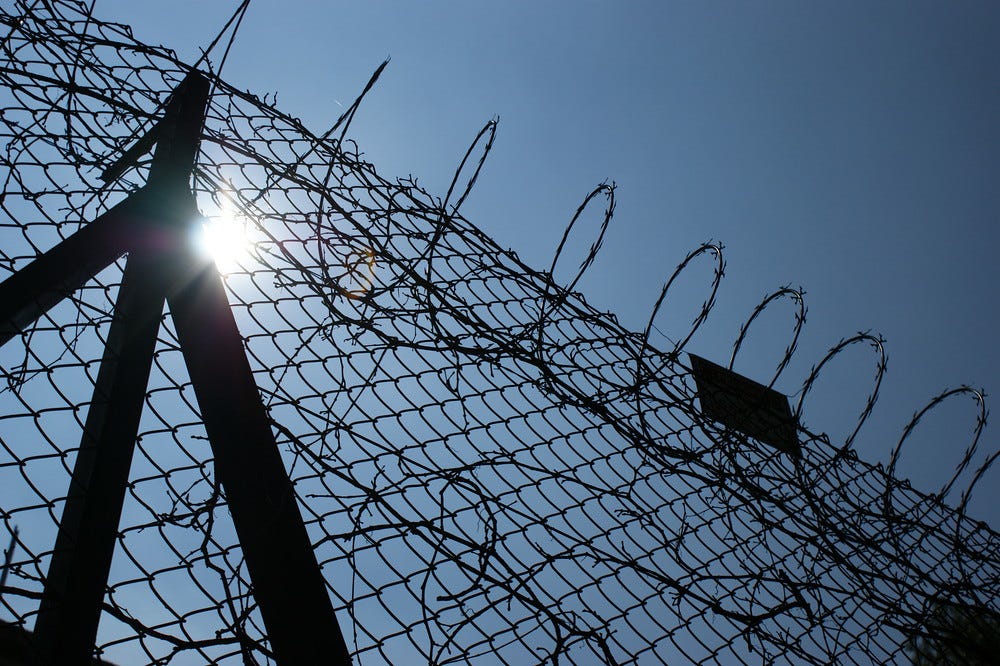Four Thousand Accused Narcos May Go Free Without Pretrial Detention
A summary of the main news from the U.S. -- Mexico border

Four Thousand Accused Narcos May Go Free Without Pretrial Detention
By Saúl Hernández, Milenio
In Mexico City, the looming potential for over 4,000 narcotics-related suspects to gain freedom emerges as the Supreme Court of Justice contemplates the constitutionality of mandatory pretrial detention. Currently, these suspects are among the 11,823 individuals detained for organized crime within federal prisons, according to the latest data from the Administrative Decentralized Body for Prevention and Social Reintegration.
The push against pretrial detention follows criticism from the Inter-American Court of Human Rights, which deems the practice as a violation of international guarantees. The debate intensifies as numerous accused, particularly from notorious cartels such as Los Zetas, Jalisco New Generation (CJNG), and the Sinaloa Cartel, await their fate.
The potential release of these individuals without prior sentencing is seen as a critical moment for Mexico's justice system, which currently houses a significant number of unsentenced individuals under its organized crime laws. This situation presents a challenge as it grapples with the implications for public safety and legal integrity, highlighting the delicate balance between upholding human rights and ensuring societal protection.
DNA Collection From Migrants Surges, Over 1.5 Million Profiles Added to U.S. Database
By Andrea Castillo, The Washington Post
The routine collection of DNA from migrants by U.S. federal authorities has seen an unprecedented increase, with over 1.5 million noncitizen DNA profiles added to a national database in less than four years. This sharp rise, reported by the Georgetown Law Center on Privacy and Technology, highlights significant privacy concerns and potential constitutional violations. The surge began in 2020 following a Department of Justice rule change that mandated the Department of Homeland Security to collect DNA from nearly all individuals detained by immigration agents.
Previously, from 2005 to early 2020, the database had gathered about 30,000 samples. The dramatic increase raises serious questions about the privacy rights of immigrants and the constitutionality of such widespread DNA collection without standard legal safeguards. Unlike in criminal justice contexts, immigration agents require neither probable cause nor judicial warrants to collect DNA, which is then sent to the FBI for inclusion in the Combined DNA Index System. This system, primarily used for criminal investigations, labels these profiles as "offenders," making them indefinitely searchable nationwide.
San Diego County Approves New Migrant Transition Center with Federal Funding
By Alexandra Mendoza, San Diego Union-Tribune
On Tuesday, the San Diego County Board of Supervisors approved accepting $19.6 million in federal funding, marking a significant step towards establishing a migrant transition day center. This decision, which was passed with a 4-1 vote, aims to enhance the support system for recently arrived migrants, particularly asylum seekers, by expediting the asylum process and improving the conditions under which migrants are released into the community.
Chair Nora Vargas highlighted the initiative as setting a national standard for treating asylum seekers with dignity and ensuring their safe transition. The funding, provided by the Federal Emergency Management Agency’s Shelter and Services Program, will help reduce the number of migrants released onto the streets. Over 136,000 migrants were released from mid-September through April, reflecting the urgent need for structured support.
The county plans to request proposals by the end of the month to find an operator for the new facility, with the selection process set for July. This initiative follows extensive consultations with local organizations to align resources, avoid service duplication, and implement best practices in migrant assistance.
Rudy Giuliani Pleads Not Guilty in Arizona Fake Electors Case
By Jacques Billeaud, Associated Press
Former New York Mayor Rudy Giuliani pleaded not guilty to nine charges connected to efforts to overturn Arizona's 2020 presidential election results. The arraignment, conducted remotely, saw Giuliani and several others, including former Arizona Republican Party Chair Kelli Ward, face conspiracy, forgery, and fraud charges. These charges stem from their roles in submitting false documents and falsely declaring Donald Trump the winner of Arizona despite Biden’s legitimate victory of over 10,000 votes.
The case, highlighted by difficulties in serving Giuliani his summons—successfully done only after his 80th birthday celebration in Florida—also features allegations against various lawyers and former Trump aides. While representing himself during the arraignment, Giuliani expressed familiarity with the charges but claimed not to possess a copy of the indictment.
The judge mandated a $10,000 secured appearance bond and required Giuliani to appear in Arizona for booking within 30 days. This case is part of broader legal actions across multiple states involving allies of the former president, aiming to challenge the integrity of the 2020 election results through unfounded voter fraud claims.





